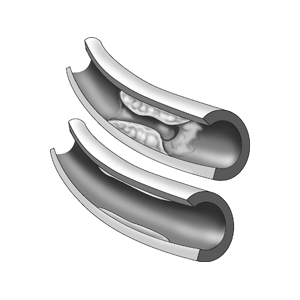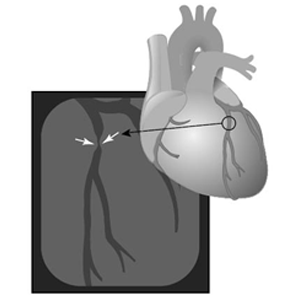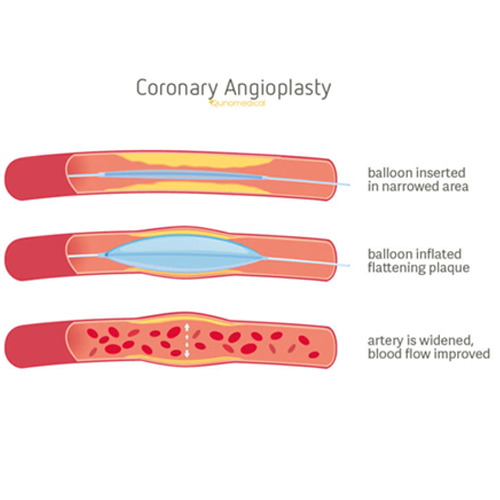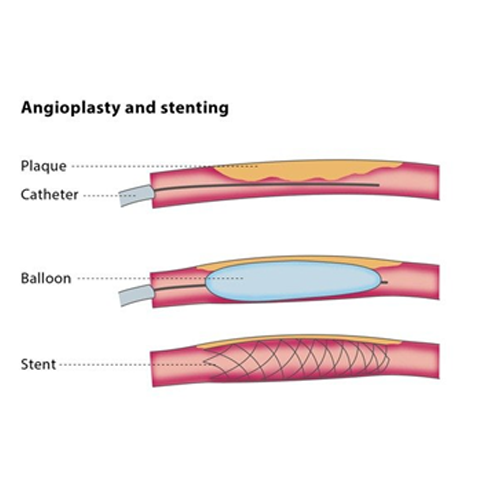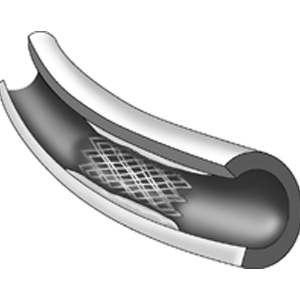Heart blockages pose a significant threat to heart health, often requiring immediate intervention. In Indore, the hub of hectic activities and vibrant life, individuals facing such challenges look for solace and solutions. Among the several therapeutic choices, Heart Block Treatment Angioplasty in Indore has emerged as a beacon of hope, offering a chance to restore heart health.
This treatment, known as coronary angioplasty, promises to clear blocked arteries and improve blood flow to the heart muscle. Through the skilled hands of experienced cardiologists and the advanced facilities available in Indore, individuals suffering from heart blockages get assured and effective treatment.
Firstly, Understanding Cardiac Catheterization
Coronary artery disease, a prevalent cardiovascular condition, is a significant health concern globally.
But How Do We Diagnose and Treat It Effectively?
Enter cardiac catheterization, an essential procedure for evaluating heart health. In this procedure, often known as a Cardiac Cath (or coronary angiogram), a long, thin tube known as a catheter is carefully inserted through a plastic sheath into a blood vessel, usually in the arm. The catheter navigates through the vessels to reach the coronary arteries, guided by advanced X-ray technology.
Once in place, the contrast material is injected through the catheter, making it possible to produce X-ray images as it flows through the heart’s chambers, valves, and major vessels. This important step, called a coronary angiogram, helps pinpoint areas of blockage or narrowing in the coronary artery and provides important clinical insight.
In some cases, additional imaging techniques such as Intravascular Ultrasound (IVUS) and Fractional Flow Reserve (FFR) may be employed for a more detailed evaluation of the blood vessel walls. IVUS, using sound waves emitted from a miniature probe on the catheter, creates clear images of the artery walls, highlighting plaque buildup. In contrast, FFR involves threading a special wire through the artery and administering medication to measure the tension in the artery segment.
Although these procedures are typically performed in specialized medical facilities, they are important for increasing diagnostic accuracy and guiding appropriate treatment strategies. Through cardiac catheterization, healthcare professionals can effectively evaluate heart function, confirm the presence of coronary artery disease, and determine the need for further intervention such as angioplasty or bypass surgery.
In summary, we can say that cardiac catheterization provides a window into the complex functioning of the heart, providing valuable insights important for the effective management of cardiovascular conditions.
Further, in the realm of cardiac health, an interventional procedure acts as a crucial ally in the fight against coronary artery disease. For more detailed information, contact Heart Block Treatment Angioplasty in Indore.
But What Exactly Is an Interventional Procedure?
Simply put, it’s the next step in your heart’s journey after a diagnostic cardiac catheterization reveals areas of concern. It’s like a skilled mechanic fine-tuning your car’s engine to ensure optimal performance.
During this process, the medical team builds upon the insights gained from cardiac catheterization. If they spot a blockage or narrowing in your coronary arteries, it’s time for action. Think of it as your heart receiving a much-needed repair job to enhance its blood flow and vitality.
Just like a precision instrument, the catheter gently navigates through your arteries to reach the problem area. Then comes the magic touch—a range of interventions tailored to your heart’s unique needs. Whether it’s using a balloon to widen the narrowed passage, placing a stent for added support, or employing innovative techniques like rotablation, each step is designed with your heart’s health in mind.
By seamlessly blending diagnostics with treatment, your Top Heart specialist in Indore and their team ensure you receive personalized care, addressing issues swiftly and effectively. It’s all about empowering your heart to beat stronger, ensuring you can embrace life with renewed vigor and vitality.
Now, the question arises in the field of cardiac care.
So, What are the Different Methods for Curing Coronary Artery Disease and Improving Heart Function?
Let’s start exploring with Coronary Angioplasty Cost in Indore.
- Balloon Angioplasty: Imagine a small balloon at the tip of a catheter delicately inserted near a narrowed area of the coronary artery. Known as percutaneous transluminal coronary angioplasty (PTCA) or percutaneous coronary intervention (PCI), this procedure aims to widen the artery by inflating the balloon and compressing the fatty plaque against the artery walls. While effective, complications such as vessel recoil and rest enosis may occur.
- Balloon Angioplasty with Stenting: Often, balloon angioplasty is combined with stenting for added support. Here, a metal mesh tube called a stent is inserted into the artery via a balloon catheter. Once in place, the balloon inflates, expanding the stent to hold the artery open. Over time, the artery heals around the stent, reducing the risk of restenosis. This procedure is typically recommended for patients with blockages in one or two coronary arteries.
- Drug-Eluting Stents (DES): Designed to prevent restenosis, drug-eluting stents release medication actively at the implantation site. While effective, patients must adhere to a prescribed medication regimen for several months post-procedure to mitigate the risk of clotting in the stent. Communication with your physician regarding any concerns is paramount for optimal care.
- Rotablation (Percutaneous Transluminal Rotational Atherectomy or PTRA): In this innovative procedure, a catheter with a diamond-coated tip is guided to the narrowed area of the coronary artery. The tip turns quickly, crushing away plaque from the artery walls to increase blood flow. Microscopic particles are securely transported in the circulation and filtered out by the liver and spleen.
These interventions, coupled with advancements in medical technology and expertise, underscore the commitment to comprehensive cardiac care. Through a tailored approach and ongoing communication with Best Heart Specialist Doctor in Indore, individuals can navigate the complexities of coronary artery disease with confidence, striving for improved heart health and overall well-being.
Understanding Your Cardiac Catheterization Procedure: A Comprehensive Preparation Guide
What Steps Should You Take Before Your Cardiac Catheterization?
Are you familiar with any allergies, such as reactions to IV dye, iodine, or latex, that might affect your upcoming cardiac catheterization procedure?
It’s essential to inform your doctor of any allergies, including those to IV dye, iodine, latex, or other substances, to ensure your safety during the procedure, especially at a cardiologist clinic near you.
Are you fully informed about the medications you’re currently taking?
It’s crucial to review your medication list with your physician before your cardiac catheterization procedure. Together, you can determine if any adjustments are needed, particularly concerning anticoagulants, aspirin, and diabetes medications.
Taking the time to discuss your medication regimen ensures that your health history is considered, minimizing potential risks during the procedure. Your physician will work with you to optimize your medication plan, promoting your safety and well-being throughout the process.
Pre-Procedure Tests:
Have all required pre-procedure tests, like blood work, an EKG, and a chest X-ray, been done or scheduled for your cardiac catheterization evaluation?
Confirming the completion or scheduling of these tests ensures a comprehensive evaluation, empowering your medical team to deliver personalized care tailored to your specific needs.
- What Essentials Should You Pack for Your Hospital Visit?
Have you packed a cozy robe for comfort during the waiting period and chosen loose, easy-to-fold clothing for convenience? Don’t forget to bring toiletries and personal items to make your hospital stay more comfortable.
It’s comforting to have a companion accompany you to the hospital for support.
Post-Procedural Guidelines
After your procedure, you must have somebody take you home. Safety is paramount, and you won’t be discharged unless there’s a responsible adult available to accompany you. If your journey home is lengthy, consider staying overnight at a nearby hotel for added rest and comfort.
During your trip home, take breaks every hour to walk and stretch, promoting circulation and reducing the risk of complications. Whether you’re driving or flying, prioritize your comfort and well-being, and consult with your doctor about resuming activities post-procedure.
Book Your Appointment Today!
Looking for Heart Block Treatment with Angioplasty in Indore?
Look no further than our dedicated Cardiologist Clinic in Indore. We’re not just about treatments; we’re about people – caring for your heart like it’s our own. From routine check-ups to advanced therapies, we’re here to support you with compassion and expertise. Reach out today to book your appointment and embark on your journey to better heart health. And Consult About Coronary Angioplasty Cost in Indore

